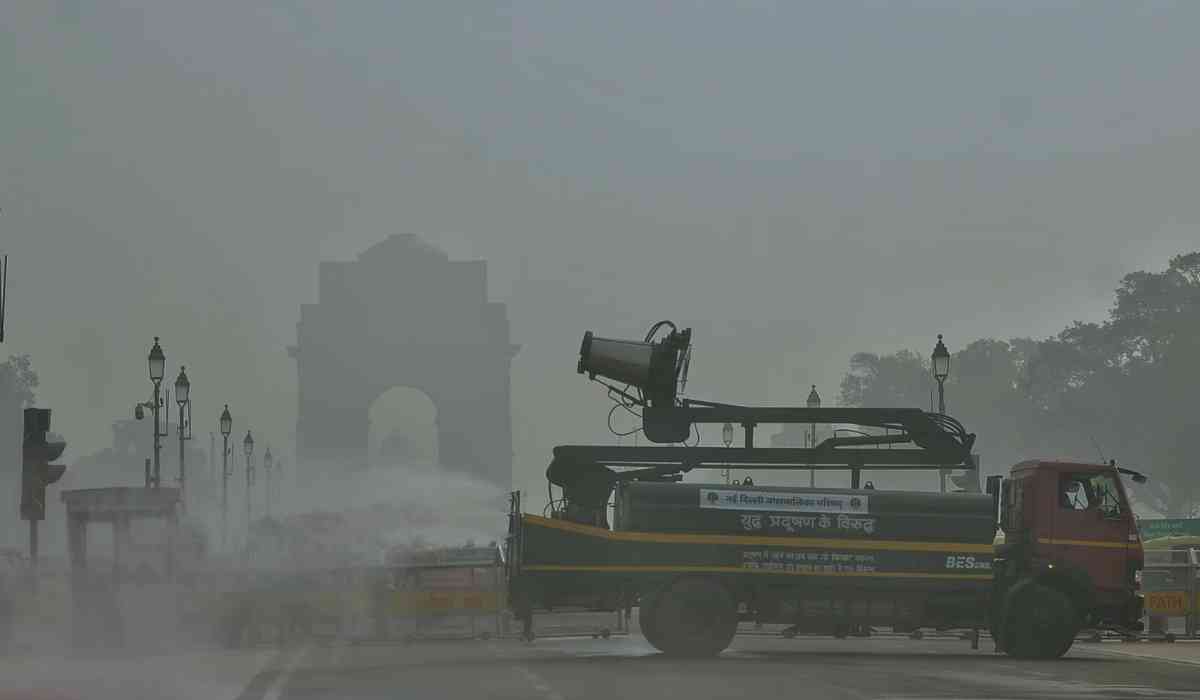Delhi woke up to a smog-filled morning on Monday as the Air Quality Index (AQI) reached a hazardous level of 484, marking the season’s worst air pollution. The city has been grappling with deteriorating air quality for weeks, with visibility dropping to 150 meters.
'Severe Plus' Forecast Over the Next Six Days
The Indian Institute of Tropical Meteorology has forecast that Delhi's air quality will remain in the ‘severe’ or ‘severe plus’ category for the next six days due to meteorological conditions preventing the dispersion of pollutants. The thick toxic smog continues to pose severe health risks to residents.
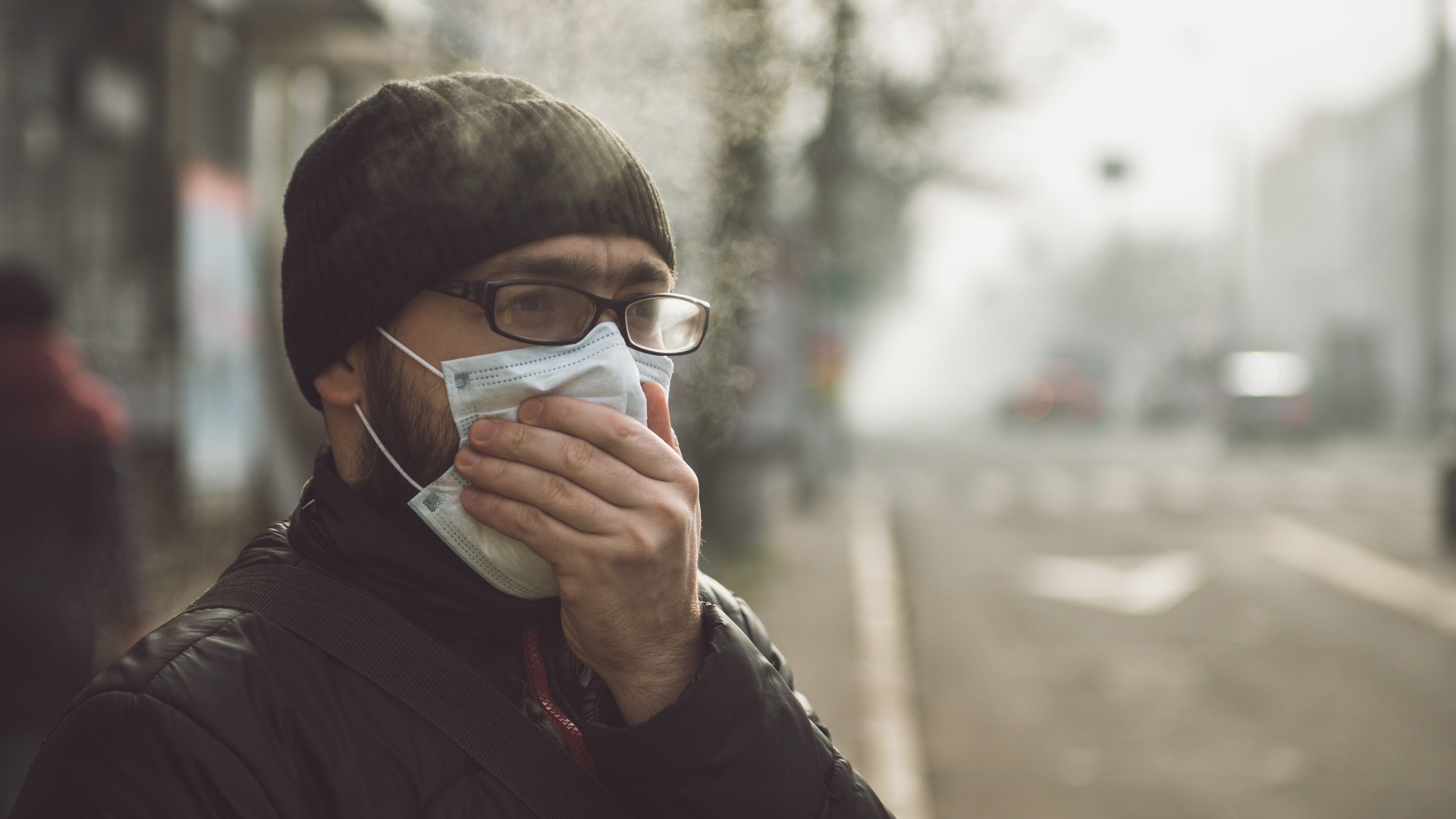
Current Air Quality Data
Several areas in Delhi recorded dangerously high AQI levels as of 9 AM Monday:
Alipur: 478
Anand Vihar: 487
Aya Nagar: 492
Bawana: 495
Jahangirpuri: 487
GRAP Stage IV Measures Enforced To combat the escalating pollution crisis, the Commission for Air Quality Management (CAQM) has activated Stage IV of the Graded Response Action Plan (GRAP).
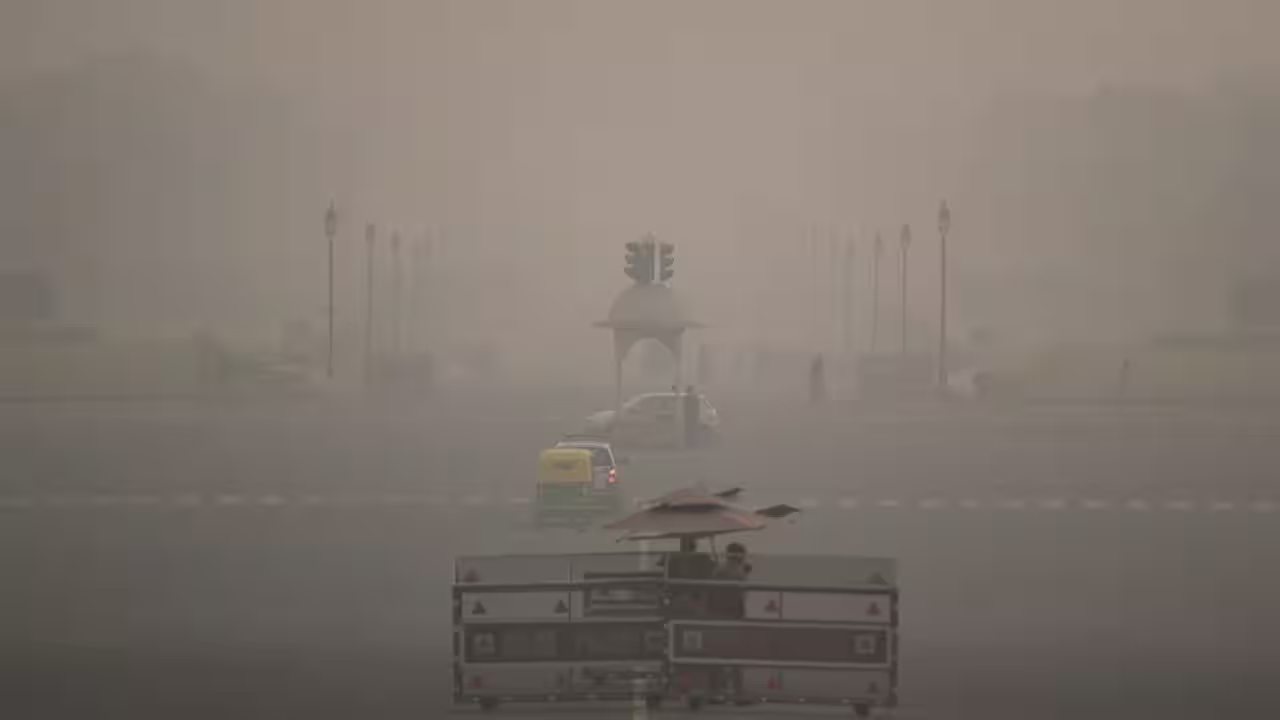
GRAP Stage 4 Measures:
- Construction Ban: All construction and demolition activities generating dust are banned.
- Transport Restrictions: Prohibition of non-essential entry of Light Commercial Vehicles (LCVs) into Delhi unless they are electric, CNG, or BS-VI diesel models and delivering essential goods.
- School Closures: Physical classes for students up to Grade 9 have shifted online, while Grades 10 and 12 continue in-person.
- Vehicle Use Limitations: Restricting the use of private BS-III petrol and BS-IV diesel vehicles.
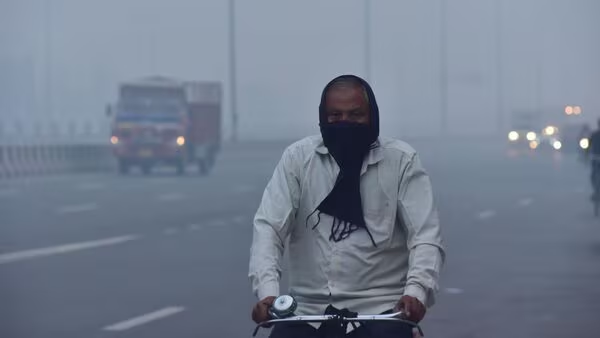
GRAP Stage 4: Is It Enough to Clear the Air?
As Delhi grapples with hazardous air quality, are these measures enough to counter such a severe pollution crisis? While halting construction, restricting vehicular movement, and banning certain activities aim to reduce pollutant levels, the persistent smog and rising AQI suggest a need for more comprehensive, long-term solutions. Can these reactive measures truly address the root causes of pollution, such as stubble burning, industrial emissions, and urban planning challenges?
Health Advisory Issued
Residents are advised to wear masks, avoid outdoor activities during peak hours, and stay indoors as much as possible. With the air quality in the ‘severe plus’ category, prolonged exposure can lead to serious health complications, especially for vulnerable groups such as children, the elderly, and those with pre-existing respiratory conditions. Delhi’s air pollution has been an annual challenge, with factors like stubble burning, vehicular emissions, and industrial activities exacerbating the situation.
Inputs by Agencies
Image Source: Multiple Agencies
Ⓒ Copyright 2024. All Rights Reserved Powered by Vygr Media.

